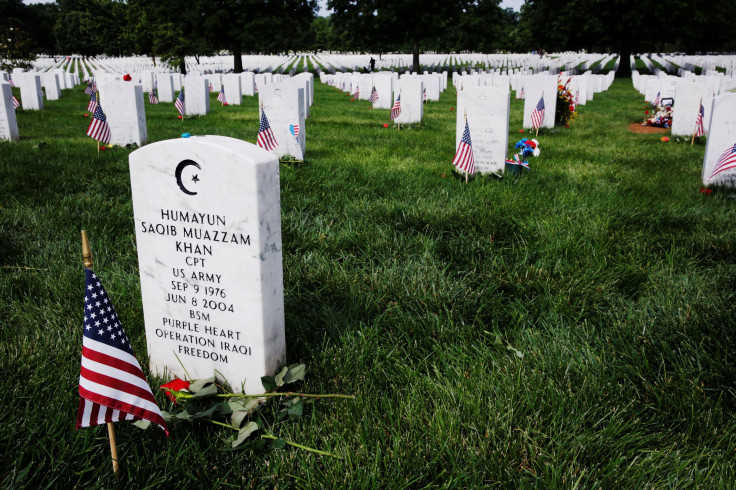Islam In America: Army's Christian Leader Is A Muslim

The army has named its first Muslim division-level chaplain in the history of the U.S. military. Lt. Col. Khallid Shabazz is slated to take the job requiring him to be a spiritual guide for more than 14,000 mostly Christian soldiers starting this summer.
Shabazz, who works at Joint Base Lewis-McChord near Tacoma, Washington, received the news in January. “I’m on the phone saying, ‘Thank you, I appreciate it. I’ll serve honorably,’ and then I hang up the phone and I’m jumping all around like a little kid,” Shabazz, 48, told the McClatchy Washington Bureau recently. “I was running around the office saying, al hamdulillah, al hamdulillah, praise be to God!”
Shabazz was already part of history before he got the promotion. Of the Army’s 1,400 or so chaplains, only five are Muslim. And there have only been 10 Muslim chaplains in the entire U.S. military.
“For me, a regular old guy from Louisiana, I look to the heavens and say, ‘Why me?’ ” Shabazz said. “As the day gets closer, I’m sure I’ll have more anxiety and think about it more. I’m extremely proud to have been on this journey for 20 years and never would’ve imagined that I’d be chosen to be the first. Islamic guy in a leadership position? If I think about it too much, it’ll get overwhelming.”
There were roughly 3.3 million Muslims living in the U.S. in 2015, representing about 1 percent of the U.S. population. More than 60 percent are immigrants, according to the Pew Research Center. There were just 5,896 Muslims serving in in the military in 2015.
Shabazz can relate to many soldiers' Christian faith. He was born Michael Barnes, into a large Lutheran family in Alexandria, Louisiana, near New Orleans. He later attended Jarvis Christian College, a historically black college in eastern Texas. At age 23, he signed up for the Army. He converted to Islam after working with a Muslim soldier in Germany.
“One of my favorite passages in the Quran asks if the man who thinks and the man who does are the same,” Shabazz said. “It’s the thinking component in Islam that really intrigued me. I am in control of my grace, and I don’t have to answer to the imam. I tell my congregation, ‘Listen, you have to do your own research.’ ”
© Copyright IBTimes 2024. All rights reserved.






















